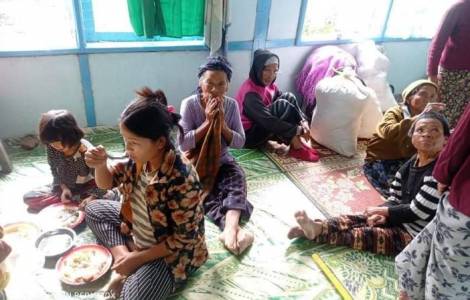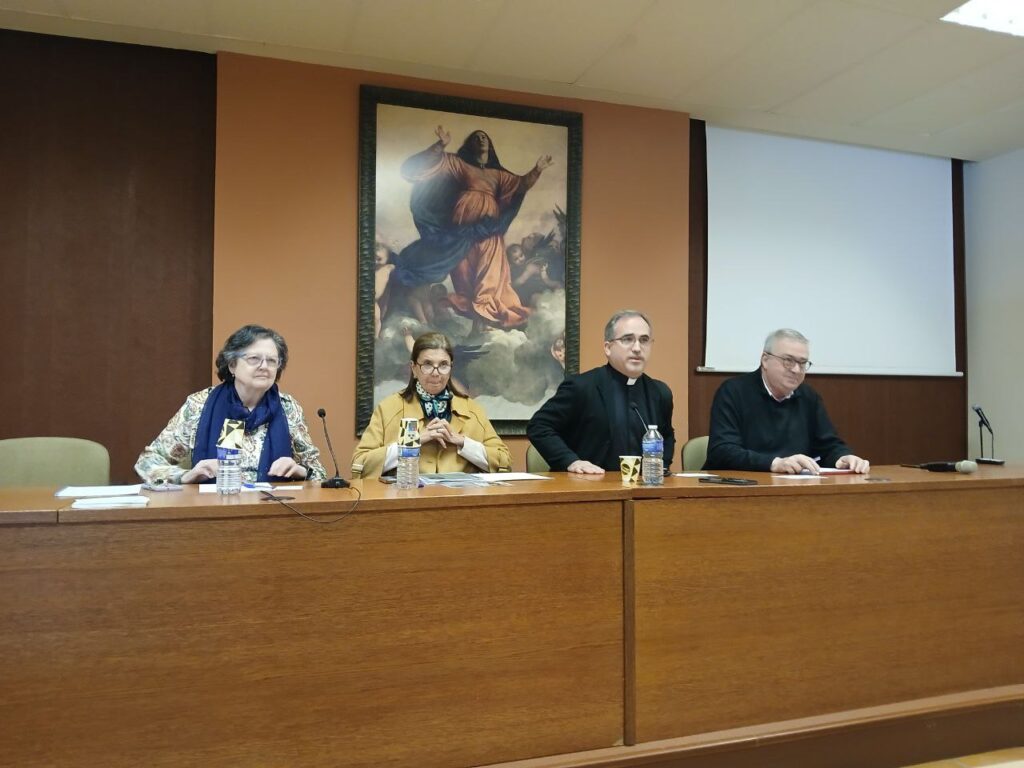Catholic Help for Displaced People in Myanmar
Fighting Between Burmese Army and Local Chinland Defense Forces

In the Catholic community in the city of Surkhua in the diocese of Hakha, over 50 displaced persons, including women, the elderly, and children, have found refuge as a result of the intense fighting between the Burmese army and the local Chinland Defense Forces (CDF) in the state of Chin in western Myanmar on the border with India, reported Fides News Agency. Armed resistance groups were only formed in the state in April of this year to fend off repression by the military. CDF armed groups are active in various cities and territories across the state, including Mindat, Thang Tlang, Senthang, Hakha, and Zotung. In the area between Hakha and Surkhua, an armed clash between Burmese forces and CDF on May 31 resulted in 8 deaths and 5 injured among the military, and 1 death among the young people of Hakha. After the clashes, the military arrested numerous youth resistance fighters and searched the area thoroughly to stifle any resistance. “Meanwhile, the people of Myanmar are now referring to the military as a terrorist army”, noted a local observer.
In this context of violence and fear among the population, Fr. Hrang Tin Thang, parish priest in Surkhua, accommodated the elderly and people with disabilities as well as the children of the city who could not escape into the forests in his parish church, where thanks with the help of Sisters of a local religious community can provide them shelter, care, and food. “It is a work of charity that we carry out without any religious discrimination, aimed at the weakest and most defenseless”, he says.
As reported to Fides by Fr. Paul Thla Kio, local priest of the diocese of Hakha, capital of Chin, even the Burmese soldiers, who controlled the area are beginning to encourage priests and women religious to continue their works of mercy and charity.
The local Catholic Church has launched an appeal noting that a humanitarian emergency is underway in the state and has asked the United Nations and NGOs to set up refugee camps so that humanitarian aid can be offered to the displaced persons in Mindat and the surrounding areas. Meanwhile, many of them also cross the border and seek refuge in India.
Related

The Martyrs and the Sacred Heart of Jesus
Exaudi Staff
07 May, 2025
3 min

Share your joy: Make your First Communion even more special
Mar Dorrio
07 May, 2025
2 min

Reflection by Bishop Enrique Díaz: I will praise you, Lord, forever. Alleluia
Enrique Díaz
04 May, 2025
5 min

Jesus Approaches, Takes the Bread, and Gives It to Him: Commentary by Fr. Jorge Miró
Jorge Miró
03 May, 2025
3 min
 (EN)
(EN)
 (ES)
(ES)
 (IT)
(IT)

